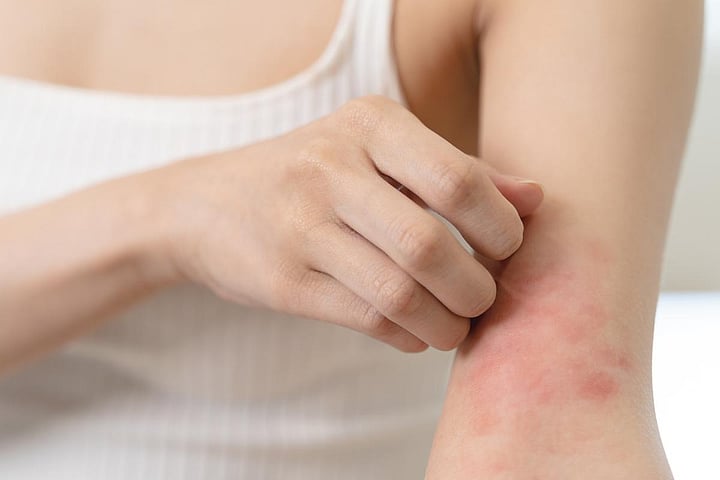触覚フィードバックで軽度アトピー性皮膚炎患者における夜間掻痒が軽減
夜間掻痒イベント平均回数と睡眠1時間当たりの掻痒平均時間が有意に減少
米ミシガン大学アナーバー校のAlbert F. Yang氏らは、単アーム2段階コホート試験を実施し、クローズドループ・触覚フィードバックを備えた人工知能(AI)対応ウェアラブルセンサーについて、軽症アトピー性皮膚炎の夜間掻痒症状に対する検出精度および軽減効果を検討した。試験には、中等度~重度の掻痒行動を自己申告した軽症アトピー性皮膚炎患者が対象者として登録された。手に装着したウェアラブルセンサーから送られる触覚フィードバックは、AIアルゴリズムによって夜間掻痒症状が検出されたときに発せられる。対象者は、まず検出機能のみ作動させたセンサーを7日間装着し、その後触覚フィードバックも作動させた状態でセンサーを7日間装着した。
対象者10人について、合計104回、831時間の夜間睡眠がモニタリングされた。追跡期間中に試験から脱落した対象者はいなかった。解析の結果、第2週目に触覚フィードバックを作動させると、1夜当たりの掻痒イベント平均回数が28%有意に減少し(45.6回対32.8回)、睡眠1時間当たりの掻痒平均時間に50%の有意差が認められた(15.8秒対7.9秒)。総睡眠時間の減少はなかった。
著者らは、「この技術は、全身治療の適応でない、あるいはステロイド外用薬の使用を希望しないが掻痒行動が多いと訴える軽症AD患者において、掻痒行動を減少させるための単独、あるいはより現実的には補助的な治療機器として役立つ可能性がある」と述べている。
なお複数の著者が、本研究の一部助成を行い、特許を出願中であるマルホ社と、1人の著者がアッヴィ社との利益相反(COI)に関する情報を明らかにしている。


Haptic Feedback Can Reduce Nocturnal Scratching in Mild Eczema
Significant decrease seen in mean scratch events nightly and in mean scratch duration per hour of sleep opportunity
WEDESDAY, Feb. 5, 2025 (HealthDay News) -- For patients with mild atopic dermatitis, haptic feedback may be used as a nonpharmacological intervention to reduce nocturnal scratching, according to a study published online Feb. 5 in JAMA Dermatology.
Albert F. Yang, M.D., from the University of Michigan in Ann Arbor, and colleagues conducted a single-arm, two-stage cohort study to examine the accuracy and efficacy of an artificial intelligence-enabled wearable sensor with closed-loop haptic feedback for reducing nocturnal scratch in patients with mild atopic dermatitis. Participants who self-reported moderate or severe scratching behaviors were enrolled. Haptic feedback, delivered by a wearable sensor mounted on the hand, was triggered on detection of nocturnal scratch by an artificial intelligence algorithm. Participants initially wore the sensor for sensing only for seven nights, followed by seven nights of wearing the sensor with haptic feedback activated.
Ten patients were included and contributed 104 sleep nights and 831 monitoring hours. None of the patients were lost to follow-up. The researchers found that when haptic feedback was activated in the second week, there was a significant 28 percent decrease in mean scratch events nightly (45.6 versus 32.8) and a significant 50 percent difference (15.8 versus 7.9 seconds) in mean scratch duration per hour of sleep opportunity, with no decrease in total sleep opportunity.
"This technology may serve as a standalone or, more likely, a supportive therapeutic device for decreasing scratching behavior in patients with mild AD who may not meet the criteria for systemic therapy or prefer to not use topical corticosteroids yet still report a high degree of scratching," the authors write.
Several authors disclosed ties to Maruho Co., which partially funded the study and has patents pending; one author disclosed ties to AbbVie.


